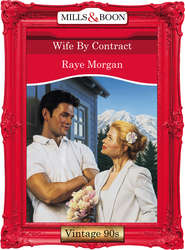скачать книгу бесплатно
“Will do.” Surprising her, surprising even himself, he bent down and dropped a quick kiss on her cheek. “See you later, Miss Annie.”
She pressed her hand to where he’d made his imprint and colored as he left, swinging down the steps and sliding behind the wheel of his fancy car. “You always were a little dickens,” she muttered, but she couldn’t hold back the pleased smile, and she shook her head as he waved, taking off in a dust cloud.
It was eerie walking into the house and hearing someone in the kitchen. Almost like the old days. But it was even eerier hearing children playing in the living room. That wasn’t much like old days. Joe and his brother never played happily like Rusty and Kim were doing. They had mainly fought.
Joe stopped in the doorway, watching the kids. They’d rigged up an old sheet between two armchairs and were using it as a tent. Kim was under the canopy, sitting cross-legged, swaying and singing a song to herself. Rusty was being an airplane, zooming around the room, stopping to babble something unintelligible at the two long-tailed goldfish who were swimming lazy laps in their bowl on the hutch, then turning abruptly to swoop toward Kim, making her shriek with delighted fear. For a moment, Joe took in the play and wondered at it. So this was what happy children did. He realized he didn’t know much about kids, when you came right down to it. All he knew about was the way he and his brother had been, and the word happy hadn’t come up much.
Suddenly, Rusty caught sight of him and stopped dead. Kim whirled, saw him and her thumb went straight into her mouth.
“Hi, kids,” he said, feeling a little awkward.
They stayed still as statues, staring at him, as though they had to be prepared to run if he took another step toward them.
He searched his mind for a topic of conversation, but came up with nothing. Then his gaze fell on the goldfish bowl.
“Hey, how do you like these two guys?” he asked heartily. “Aren’t they cute?”
Rusty looked at the bowl and nodded. “What are their names?” he asked.
“Uh...” How should he know? But pets had to have names. “Goldie and Piranha,” he said off the top of his head. “Do you like goldfish?”
Neither of them said anything. Both just stared at him, and he found himself sweating under this kind of scrutiny. Swearing softly under his breath, he turned away. Obviously, he had no natural knack with children. That was hardly surprising. Still, it hurt a little to think kids hated him on sight.
On the other hand, women usually liked him just fine, and there happened to be one on the premises. Feeling better about it all, he made his way to the kitchen, where he’d heard those busy sounds when he’d first come back into the house.
Chynna was at the sink and he stopped, startled by the change. She’d cast off her business suit for jeans and a jersey top that hugged her curves like—well, it might be best not to go on with that simile. And it might be important not to let his gaze linger too long on the more spectacular elements. Shifting his attention to the dishwater, he came in and plunked himself down at the table.
“How did you know,” he asked abruptly, “that you were going to like kids? Before you had them, I mean. What gave you the courage to take the plunge?”
She looked at him for a moment, turning her head so that her long, loose hair swung like a pendulum at her back, and laughed. “What did they do to you now?” she asked, one hand on her hip.
He managed an innocent look. “Nothing. Not a thing.” Then his conscience got the better of him. “Well, if they were a little older, I’d say they snubbed me. But since they’re just kids...”
“Kids can break your heart, too,” she said softly. “They’re so open and innocent about it. They haven’t learned to hide their feelings, so what they do comes straight from their soul. That can hurt a lot.”
“Yeah.” He shrugged it off. “I guess you’re just a natural with children, aren’t you?”
She threw back her head and laughed, surprising him. “Hardly,” she said, her eyes dancing with amusement. “I made a lot of mistakes. I still make them.”
He shook his head. “It’s all too complex for me. I don’t think I’ll ever have kids. I have enough trouble keeping a dog happy.”
The laughter evaporated from her face like spring rain on hot pavement. This was not the way she wanted things to go.
“Kids are great,” she said quickly. “They grow on you.”
“Like fungus?” He made a face. “No, thanks. I think I’ll pass.”
“You’ll see,” she said, gazing at him seriously. “You’ll see.”
He looked back into her deep, dark eyes, and something he saw there—or maybe something he didn’t see—made him uneasy.
“Listen,” he began, feeling as though he had to explain things to her, make her face the fact that he wasn’t Greg, that he would never go for kids, that he doubted if Greg would, either, that she had made a big mistake coming here to Alaska.
But as though she read his mind and didn’t want to hear it, she turned away, reaching for the pan she’d been scouring, and the words stopped in his throat. At the same time, he noticed she’d been cleaning.
“Wow,” he said, examining the kitchen, first one side and then the other. The tile on the counters was shining, and the boxes of food that had been stacked there earlier had vanished. “You didn’t need to do this.”
Вы ознакомились с фрагментом книги.
Для бесплатного чтения открыта только часть текста.
Приобретайте полный текст книги у нашего партнера:
